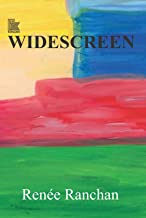Renee Ranchan’s book gives a series of peeks into what such an individual, such a mind thinks and reacts to places, people and circumstances.
India has seen a transformation of mindsets that has become impossible to ignore. From 1993-95 onwards, waves of reforms in the economy ensured that the earlier policy of discriminating against private industry ended. Once Narendra Modi took over as Prime Minister of India in 2014, that process has accelerated sharply. Sectors where in the past domestic (although not international) private industry was excluded have been thrown open. Across the country, private schools and colleges have multiplied, as have innovations in education designed to replace rote learning with the exercise of intellect and discretion. It does not not come as a surprise that citizens of India have become welcome additions to countries across the world, from Australia to the United States. It helps that for 75 years, the people of India have lived in a democracy and have adapted to its ways and requirements, thereby outfitting them to live and work in other democracies. Renee Ranchan reflects the new, globally attuned, confident persona of the 21st century Indian. Her book gives a series of peeks into what such an individual, such a mind, thinks and reacts to places, people and circumstances. As is clear from the title, the range of subjects that is covered is wide, very wide. There are vignettes of the interaction of a mother and her son interspersed with contacts and communications with strangers or friends.
Ranchan weaves into her narratives the inevitable essentialities of modern life, especially in matters electronic. She speaks with a smile about
Humour is pervasive, as in her description of different diet regimes , such as the papaya or the cabbage diet. Of course, a friend holding a book on such esoteric matters was willing to surrender that gem of a book for a block of the darkest of chocolates, perhaps a fair trade, given how diets seldom last beyond a few days. Or in her description of government offices with their long lunch breaks.
At the same time, she draws attention to dangers such as online stalking. The mobile phone, the laptop, are ubiquitous, they are everywhere, including in a country that not long ago was derided for being “Third World”. Not any more. Ranchan points to the influence of India even in Britain, which has become a fusion of cultures and ethnicities, even choosing a Prime Minister whose parents came from India. Over abd over, she sketches the impact of technology on everyday life. About how these days, there is no need to carry a staggering load of books when all that and much more can get fitted into a palmtop.
The author moves on from locale to locale, personal glimpse to personal glimpse, personality to personality, with ease that makes reading the book a pleasure rather than a chore.Ranchan has a sharp eye for detail, not only where India is concerned, but where the US or Britain are. She points to the reverence with which the Royal Family is regarded in Blighty, and draws a contrast to the attitude in the US, where Presidents move on and family dynasties falter, as the experience of the Clinton and Bush families have shown. Given her undoubted talents, Hillary Clinton would probably have been more succesful had she been a candidate whose husband had not been President of the US. There is so much to read about, from Sanju Dutt to Madhuri Dixit to Angelina Jolie. There are so many slices of reality revealed through her expressive prose, that it would take a page to enumerate even in precis form. Better, dear reader, to get the book and savour its delights directly.
WIDESCREEN ( pages 312)
by Renee Ranchan
Konark Publishers (P) Ltd

